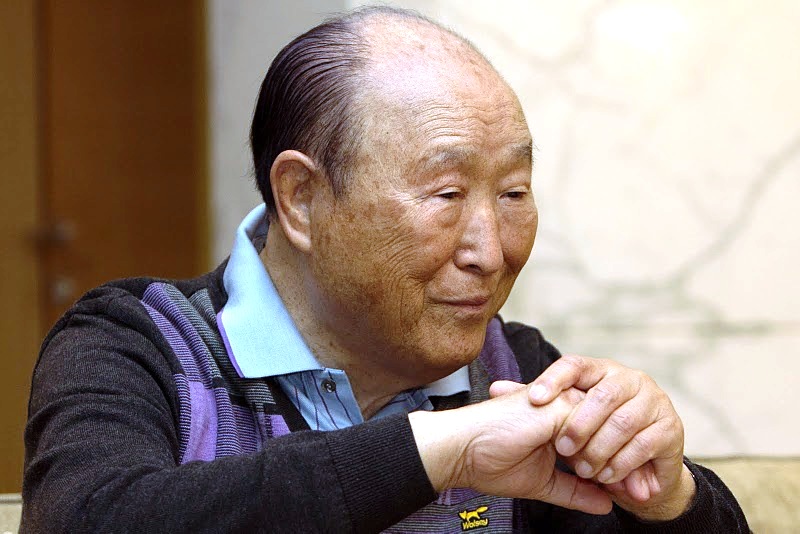![]()
The Words of the Rubenstein Family
|
|
The Words of the Rubenstein Family |

Sun
Myung Moon May 5, 2011
"Honored friends,
"It is my great privilege and high honor this morning to introduce the Founder of the International Conference on the Unity of the Sciences, the Rev. Sun Myung Moon.
"In so doing, I could share with you some details of his career, but I thought I would take this occasion instead to tell you why it is my conviction that the Rev. Moon is one of the most important leaders of our time."
(Dr. Rubenstein describes his thoughts and concern over 18 years ago the day he was in Poland when he saw the newspaper headline that the great Catholic theologian Paul Johannes Tillich had died in Chicago, Illinois.)
"And I remember on that grim November day asking myself, 'What is going to come after Tillich?' And there was a way in which I was afraid that perhaps theology had reached a dead end. There was evidence that perhaps theology had reached a dead end.
"And when I think of Tillich's contribution, one if the things that stands out is the fact that Tillich was able to let us look at the history of what has been -- and understand it. The question which was uppermost in my mind was, 'What will the future bring? And will it be enough to engage in what Germans call Nachgedankendenken -- a thinking after the fact. Or will there be some projective force that could carry us into the future?'
"In 1976 I received part of that answer; it came in the form of a communication from Dr. Fredrick Sontag. Dr. Sontag was writing a biography of the Rev. Sun Myung Moon and he was in Paris, and he wrote to me saying, `Something new, something genuinely important is happening.' And I was skeptical; I did not believe that at the time. But after I came to ICUS, and after I came to know the Rev. Sun Myung Moon, the Unification Church and its work, I realized that the projective force for the future had come from where we -- who had studied at such places as Harvard and Yale -- thought to be a most unlikely place: we hardly would have heard the name of Korea had it not been for the Korean War. And yet out of that unlikely place, something new had come. What is that something new?
"Instead of thinking on what had been, we were in the presence of a man who was not only inspired, but who had the capacity to inspire!
"And what do I mean by inspire and to be able to inspire others?
"Well, the Prophet Ezekiel gives a very good example of what is meant. Those of you familiar with the Bible know that at one point the Prophet beheld a valley of dry bones and was asked by the Lord whether these dry bones would live. And he was told to prophesy concerning these dry bones.
"And the Lord spoke and said that `I will cause my breath to enter these bones and they will live.'
"To give the life-giving breath; to take that which is inanimate and turn it into that which is living; that which is fructifying -- that is 'to inspire."
(Dr. Rubenstein offered the scholars gathered the first example of Father's work: the Washington Times, emphasizing that no one else wanted to risk financial ruin in a city where another paper had recently gone out of business, leaving the nation's capital with a single voice.)
"But only a man who is religiously inspired; only a man who understood that there were motives which transcended the economics, and only a man who was inspired to do the redemptive work of the world -- and I use those words advisedly. Sometimes they are used cheaply and preachily, but when the words are used in such a way that they are transformed into praxis -- into action -- then the words `the redemption the liberation of the world' mean something quite well.
"And let me give you one more example of what it means to inspire: Were it not for the Rev. Moon's decision and commitment to work for the redemption of the world in his own way, scientists and thinkers who gather here today would not be gathered!
"Why do I say that? Very simple: Some of you may say, 'Oh, does that mean that Religion is interfering with Science?' And the answer is, as those of you who have been in this conference know, No. Religion is not interfering with Science; what Religion is doing is making it possible for Science to do its work!
"There are only two ways in which this can happen: government contract -- or religious inspiration! And I for one would prefer the freedom and the blessing that comes from religious inspiration.
"These are two of the ways in which a man who has been inspired and has the capacity to inspire is making his impact on the world today -- an impact that is not always understood; but when is a man of originality and daring ever understood?
"It is our privilege to be with him and to share his work. It is my great honor, dear friends, to introduce the Rev. Sun Myung Moon!"